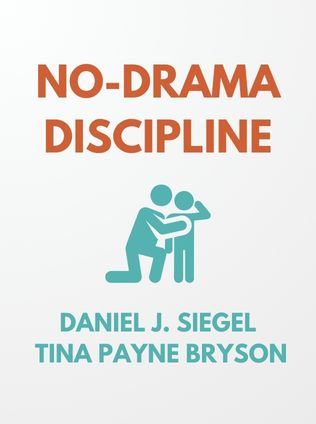
No-Drama Discipline
The Whole-Brain Way to Calm the Chaos and Nurture Your Child's Developing Mind
By Daniel J. Siegel and Tina Payne Bryson
Published 09/2014
About the Author
Daniel J. Siegel, M.D., and Tina Payne Bryson, Ph.D., are renowned experts in the field of child psychology and parenting. Dr. Siegel is a clinical professor of psychiatry at the UCLA School of Medicine and a co-director of the Mindful Awareness Research Center at UCLA. His groundbreaking work has focused on the development of minds and emotions, and how these shape relationships. Dr. Bryson is a psychotherapist and the executive director of the Center for Connection in Pasadena, California. Together, they have authored multiple books that aim to make the science of child development accessible to parents, empowering them to raise well-rounded, emotionally intelligent children.
Main Idea
"No-Drama Discipline" is a parenting guide designed to help parents approach discipline in a way that fosters both a deep bond with their children and the healthy development of their brains. The book emphasizes the importance of understanding how a child's brain works and how discipline can be used as a tool for teaching rather than punishment. By using a three-step approach—preparation, connection, and teaching—parents can discipline without the usual drama, creating a safe space for children to learn, grow, and build essential life skills.
Table of Contents
- Introduction: Why No-Drama Discipline?
- Chapter 1: Reframing Discipline as Teaching
- Chapter 2: The Science of a Child's Brain
- Chapter 3: Preparation: Setting the Stage for Discipline
- Chapter 4: Connection: The Heart of Effective Discipline
- Chapter 5: Teaching: The Art of Redirection
- Chapter 6: Strategies for Everyday Challenges
- Conclusion: The Power of No-Drama Discipline
Introduction: Why No-Drama Discipline?
The introduction of "No-Drama Discipline" sets the stage for a revolutionary approach to disciplining children. The authors challenge the traditional notion that discipline is synonymous with punishment, instead proposing that discipline should be an opportunity to teach and connect with children. This shift in perspective is crucial because it redefines the parent-child relationship, focusing on long-term developmental goals rather than short-term compliance. By reducing the drama typically associated with discipline, parents can create an environment where children feel safe and understood, which in turn fosters better behavior and stronger relationships.
Chapter 1: Reframing Discipline as Teaching
In the first chapter, Siegel and Bryson delve into the concept of discipline as teaching. They argue that the word "discipline" itself comes from the Latin word "disciplina," which means "to teach." The authors emphasize that effective discipline is not about punishing children for their mistakes but rather about teaching them how to make better choices in the future. This approach encourages parents to focus on long-term skill-building, helping children develop essential skills such as empathy, emotional regulation, and critical thinking.
Sign up for FREE and get access to 1,400+ books summaries.
You May Also Like
The Subtle Art of Not Giving a F*ck
A Counterintuitive Approach to Living a Good Life
By Mark MansonRich Dad Poor Dad
What the Rich Teach Their Kids About Money - That the Poor and Middle Class Do Not!
By Robert T. KiyosakiHow To Win Friends and Influence People
The All-Time Classic Manual Of People Skills
By Dale CarnegieFreakonomics
A Rogue Economist Explores the Hidden Side of Everything
By Steven D. Levitt and Stephen J. Dubner



















